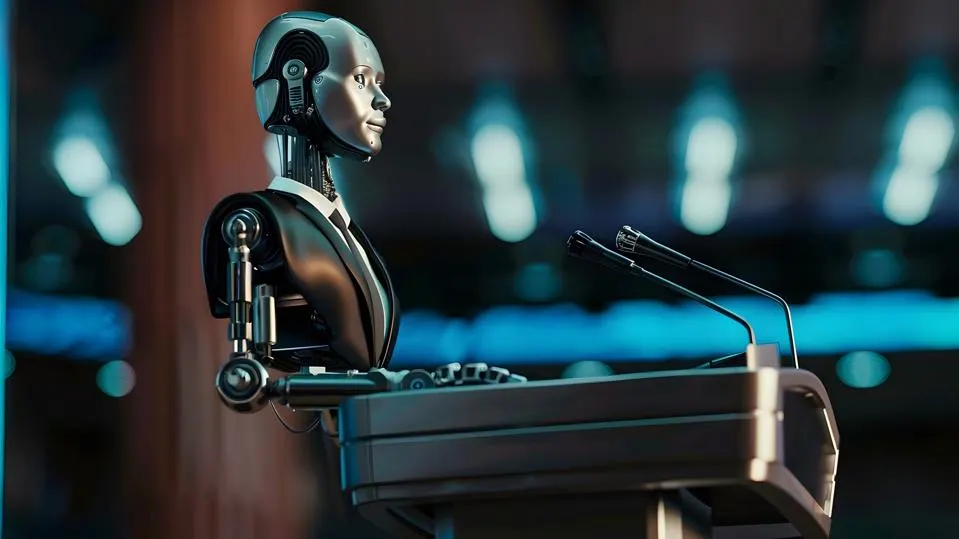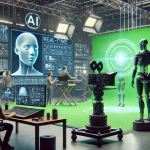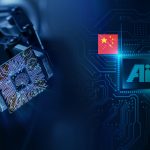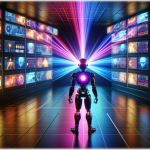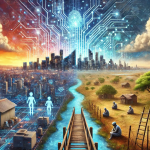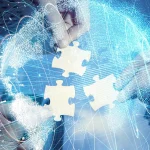Introduction
In an era where artificial intelligence defines decision-making and digital media drives public opinion, politics has entered a transformative phase. The rise of AI-driven campaigns and social platforms has blurred the boundaries between leadership, influence, and celebrity power. Political narratives are now crafted not only in parliaments but also in trending hashtags and viral videos.
As technology integrates deeper into governance, the fusion of digital algorithms, global activism, and star influence is redefining how societies engage with democracy. This shift raises essential questions about ethics, transparency, and the true meaning of political representation in a connected world.
AI in Political Decision-Making
Artificial intelligence has become a key player in modern governance. Governments are adopting AI systems to forecast economic trends, analyze public sentiment, and enhance policy decisions. Algorithms now shape everything from tax reforms to security surveillance, offering efficiency but also introducing risks of bias and privacy violations.
This growing reliance on AI tools means that political decisions are increasingly influenced by data analytics rather than human intuition. While some view this as progress, critics warn that unchecked automation could reduce empathy and accountability in global politics.
Celebrities Enter the Political Arena
Celebrities are no longer confined to screens and stages—they are becoming political voices with global impact. Figures like Taylor Swift, Leonardo DiCaprio, and Angelina Jolie have used their platforms to raise awareness about social justice, climate change, and humanitarian crises. Their influence often surpasses traditional politicians in reaching young audiences.
However, this celebrity-driven activism also blurs the line between popularity and policy expertise. Critics argue that fame should not equate to authority, yet the power of celebrity voices in mobilizing global audiences cannot be denied.
Social Media as the New Political Battleground
The internet has transformed political communication into a fast-paced, emotion-driven arena. Platforms like X (formerly Twitter), Instagram, and TikTok are now the main channels for spreading political messages. Leaders and activists alike use these platforms to shape narratives and influence elections.
But this digital battleground is also fraught with misinformation and manipulation. Deepfakes, fake news, and algorithmic echo chambers threaten to distort truth and weaken democracy. The world is witnessing a new type of propaganda—one powered by AI precision and viral reach.
Global Politics and the Tech Giants
Technology companies now hold unprecedented influence over global governance. From regulating speech to managing election advertising, corporations like Meta, Google, and OpenAI wield power comparable to that of nation-states. Their algorithms dictate public visibility, making them invisible gatekeepers of modern politics.
This growing dominance has sparked debates about accountability. Should private companies be allowed to shape political outcomes? Governments are scrambling to create laws that ensure transparency, but enforcement remains a complex global challenge.
The Ethical Dilemma of AI Governance
AI promises efficiency but raises serious ethical concerns. Machine learning models are only as fair as the data they are trained on, which often reflects existing social biases. In politics, this can lead to discriminatory policies or unfair targeting during elections.
Ethical AI governance requires global cooperation and oversight. Without it, democracy risks turning into a system where algorithms—not people—decide who gets heard and who gets silenced.
The Intersection of Technology and Human Rights
Technology has the potential to both empower and oppress. In regions where digital surveillance is rising, citizens face the risk of having their freedoms curtailed in the name of security. AI-powered facial recognition and predictive policing systems are now central to debates about privacy and human rights.
Celebrities and activists are increasingly vocal about these concerns. Campaigns calling for “ethical AI” and digital transparency have gained international traction, emphasizing the need to balance innovation with civil liberties.
FAQs
How is AI used in modern politics?
AI assists in data analysis, voter prediction, and policy-making, allowing governments to make data-driven decisions with greater accuracy.
Why are celebrities influencing politics today?
Celebrities command massive online followings, giving them the ability to mobilize public opinion and shape policy discussions globally.
Is AI governance ethical?
It depends on regulation. Without oversight, AI can perpetuate bias and manipulate decision-making in ways that harm democracy.
How do tech companies impact political systems?
By controlling online visibility, platforms influence what people see and believe, effectively steering public discourse.
What is digital democracy?
It’s a system where technology enables greater participation and transparency in politics but also poses risks of control and misinformation.
Conclusion
The alliance between technology, politics, and celebrity influence marks a new chapter in global democracy. Artificial intelligence has streamlined governance, while digital culture has amplified political voices across continents. Yet, these advancements come with moral and ethical questions that society must address.
The future of democracy will depend on striking a balance between innovation and integrity. As AI continues to evolve and celebrities shape global consciousness, the world must ensure that progress does not come at the cost of freedom, fairness, or truth.

